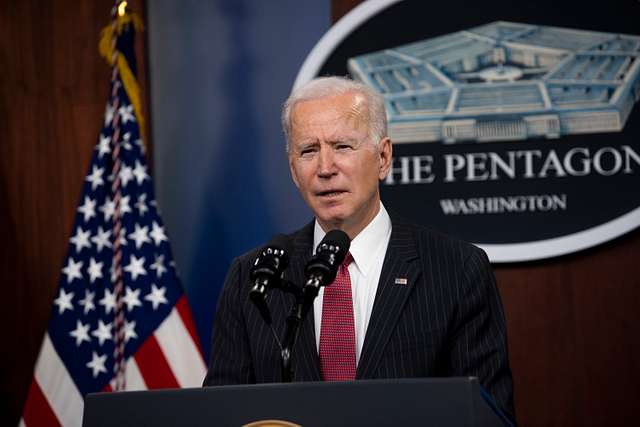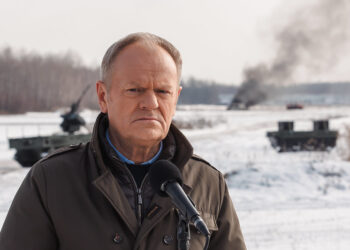In a recent interview with Time magazine, President Joe Biden warned that the fall of Ukraine could lead to destabilization in Poland and other countries bordering Russia. Biden stressed the importance of supporting Ukraine to prevent further regional threats.
“If we allow Ukraine to fall, remember my words: Poland and all those countries along Russia’s actual border, from the Balkans to Belarus, will follow,” Biden said. He argued that Russian President Vladimir Putin aims to re-establish the Soviet Union and the Warsaw Pact. According to Biden, ensuring peace means guaranteeing that “Russia will never, ever, ever occupy Ukraine,” though he clarified that this does not necessarily mean Ukraine joining NATO.
Biden discussed the U.S. approach to Ukraine’s defense, advocating for continued arms supplies to help Ukraine defend itself. He reiterated his previous stance against supporting Ukraine’s full NATO membership, instead favoring a strong defense partnership similar to those the U.S. has with other nations.
Biden’s remarks extended to the broader geopolitical landscape, including China’s economic and demographic challenges and the situation in Gaza. He called for a two-state solution supported by Arab leaders and criticized any prolonged Israeli military presence in Gaza, emphasizing the humanitarian suffering of Palestinians.
Context and Implications
Biden’s comments underscore the interconnectedness of global security issues and the potential ripple effects of the Ukraine conflict on neighboring regions. His warning about Poland and other Eastern European countries highlights the fragile security balance and the importance of international support for Ukraine.
The President’s views on NATO, U.S. electoral politics, and international relations reflect a commitment to maintaining a stable and secure global order.
President Biden’s warnings about the potential consequences of Ukraine’s fall serve as a stark reminder of the geopolitical stakes involved. His emphasis on continued military support and strategic partnerships highlights the critical need for unity and resilience among democratic nations. As the situation develops, Biden’s insights will likely shape ongoing debates about international security and the future of global alliances.


















